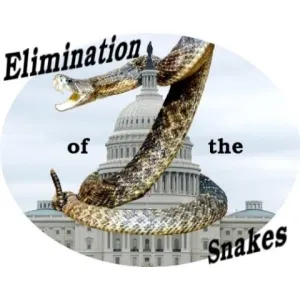Podcast Summary
Starbucks Baristas' Unionization Efforts: Amidst overwhelming workloads and low pay, Starbucks baristas and workers from other companies like Amazon, Trader Joe's, and Apple Stores, are pushing for unionization to negotiate better working conditions and compensation.
The experiences of overwhelming workloads and low pay faced by Starbucks baristas, as shared by Casey Moore and other workers, have led to a wave of unionization efforts at the company and beyond. This trend, which includes unions forming at Amazon, Trader Joe's, and Apple Stores, among others, has faced challenges in getting companies to come to the bargaining table to negotiate contracts. Despite these challenges, the movement continues to grow, with over 300 Starbucks stores in the US having filed for union elections in the past year alone. This push for unionization is a response to the intense working conditions and lack of adequate compensation that many workers in the service industry have faced, particularly during the pandemic.
Starbucks Workers United: A Union for the Modern Era: Amidst the pandemic, Starbucks Workers United formed, aiming to improve working conditions and wages for baristas. Despite complex unionization process, they've made significant progress, inspiring underrepresented populations to join the US labor movement.
The COVID-19 pandemic led to an increase in Starbucks delivery and mobile orders, making baristas' jobs more complicated and challenging. This situation, along with the desire for better working conditions and wages, led to the rapid spread of Starbucks Workers United, a young and diverse union made up of over 200 small unions. The process of forming a union in the US is complex and involves collecting signatures, filing a petition with the National Labor Relations Board, and conducting an election. Despite the challenges, Starbucks Workers United has made significant strides in organizing, particularly in industries like fast food where unionization has historically been difficult. Their success has given new energy to the US labor movement, which has been struggling to engage underrepresented populations.
Unions give workers a stronger voice in negotiations: Unions help employees negotiate better pay, benefits, hours, and conditions. However, reaching a collective bargaining agreement can take time and involves discussing various aspects of the workplace.
Unions provide workers with a collective voice to negotiate better pay, benefits, working hours, and working conditions with their employers. However, the employer must be willing to come to the bargaining table for a collective bargaining agreement to be reached. This agreement is a contract between the union and management that sets the working conditions. Negotiating one can take a long time and involves discussing various aspects of the workplace, such as vacation time, sick leave, and parental leave. Once signed, it becomes difficult to make drastic changes to the working conditions. Starbucks, under Howard Schultz's leadership, has expressed opposition to unions, viewing them as an obstacle to day-to-day operations. Despite the challenges, union organizers at Starbucks continue to push for collective bargaining agreements.
Starbucks Workers Push for Contract Negotiations: Starbucks workers aim to secure wage gains, better benefits, and new equipment through contract negotiations, but getting companies to the bargaining table is challenging due to weak labor laws and the slow, complex process. Workers are resorting to strikes to put pressure on employers.
Starbucks workers are focusing on engaging the company for contract negotiations despite a decrease in union petition filings. They aim to secure wage gains, better benefits, and new equipment. However, getting companies to the bargaining table can be challenging due to weak labor laws in the US. The government has few tools to force employers to negotiate in good faith, and the process is slow and complex. Proposed legislation to strengthen labor laws is currently stalled in Congress. In the meantime, workers are resorting to strikes as an effective way to put pressure on companies to listen to their demands. The current Democratic leadership of the National Labor Relations Board has helped enforce labor laws more strictly, but the process remains slow and difficult.
Starbucks union strikes have minimal impact on financials: Starbucks can replace striking workers, but union members seek structural change and a voice in company decisions. Wider union movement watches for progress, with some turning to political activism and young recruitment.
The Starbucks union strikes have had limited impact on the company's financial performance, as Starbucks can easily replace striking workers with new hires. However, the union's desire for structural change and a say in company decisions remains unmet. Starbucks' recent investments in store updates and training could be seen as an attempt to keep the union at bay, but union members continue to express dissatisfaction. The wider union movement is closely watching Starbucks to see if a contract can be negotiated, as the conversation around unions is gaining momentum in the US with increased public support. Some union leaders believe that being more politically engaged and engaging young people could be the answers to gaining more power for unions. Meanwhile, for workers like Casey Moore, the Starbucks union experience has led to a new career path in union organizing.
Unions offer collective power and change: Unions provide a sense of collective power and stability, unlike the uncertain outcome of electing political representatives. Flexibility is valuable in various aspects of life, including insurance coverage and career transitions. Companies like UnitedHealthcare and 1800flowers.com offer flexible solutions to meet diverse needs.
Unions offer a sense of collective power and change, unlike the uncertain outcome of electing political representatives. While the certification process for Casey's union election is ongoing, the excitement and passion for labor movement work remains strong. Flexibility is a valuable asset, whether it's in yoga, insurance coverage, or career transitions. UnitedHealthcare Insurance Plans provide flexible, budget-friendly options for various coverage needs. Lastly, 1800flowers.com goes beyond being just a gift-giving destination, as they put their hearts into delivering smiles.





